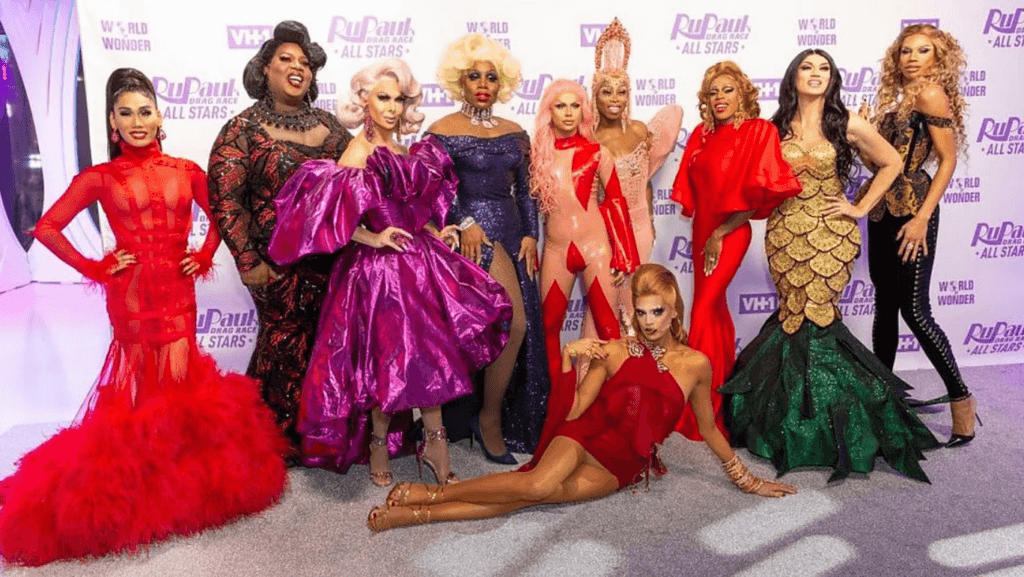By Patrick R. Riccards

Are they sus or are they afraid of being clocked?
Whichever way you look at it, it is clear that those who participate in violent extremism seem to spend way more time thinking about drag queens, drag shows, and drag culture than any of us might have thought.
For the past few years, across the nation, violent extremists and hate groups have set their sights on drag clubs, drag brunches, and drag performers. From Texas to North Carolina, Ohio to Tennessee, extremists have been working overtime to make drag their public enemy number one.
And somehow in the process, drag has gone from angering Christian moms to outraging the Proud Boys.
We have seen overt displays of violent extremism grow at exponential rates. At the same time, extremists have offered an ever-expanding salad bar of hate to their brethren, from anti-Black to anti-Latino, anti-undocumented immigrant to anti-government, antisemitic to anti-Muslim, anti-women to anti-LGBTQIA+. There is a flavor of hate for just about every potential hater.
So why the focus on drag culture? What is it about a Heather that can divert one’s attention from storming the U.S. Capitol, marching in college towns with tiki torches, playing Army in the forest with real AR-15s, or spewing hate on 4-Chan, Telegram, or Gab?
The answer to this question may be as simple as it seems. Aside from the same recycled anti-LGBTQ+ hate violent that far right extremists have always endorsed, drag culture is all about expressing yourself, displaying your uniqueness, celebrating life, and generally embracing who you really are. It is about putting a new positivity into the world from a place where there was once much scorn and scrutiny. It’s about finding joy in struggles and turning fear into fabulosity.
Everything the average violent white supremacist just cannot — or will not — understand.
To a run-of-the-mill hater, a drag queen is a repudiation of the masculinity the hater seeks to achieve each and every day. It is a rejection of the conformity the violent extremist movement seeks to instill in all of its followers. It is an acknowledgment that differences should be celebrated. And yes, it can be a confrontation of one’s sexuality and sense of self.
As someone who is in the violent extremist space every day, someone who is committed to helping individuals leave their lives of hate behind and rejoin civil society, it is time for me to share a little T. First, the drag community embraces this attention from extremists as a badge of honor, another proof point that drag culture is front and center in popular society and is a force for positivity and good. Second, it is the canary in the coal mine that there is a real chance to help individuals exit the practice of violent extremism.
Many who pursue lives of violent extremism do so because they seek a place of belonging and acceptance, not because they are initially committed to the ideology. As hate recruiters offer them a new family that “gets them,” they quickly adopt the thinking, the rhetoric, and the actions of a violent extremist. In their pursuit of fitting in, and in their fear of not, the extremism grows, leaving us with the violent haters we see across the nation today.
Over time, the doubts start to grow. Extremists begin to soften in their ideology. They start to question the words they have spewed for years. They wonder if there is another path for them, while believing they have no choice but to stay the hate-filled course, believing and being told by others in violent extremist movements, that an enlightened society will never welcome an American Nazi back.
Of course, the LGBT+ community can teach these potentially former haters the path forward, particularly for those violent extremists who are willing to take accountability for their past actions, who can own up to the lowest, worst moments of their lives and make amends for it.
Those committed to change must be shown the compassion to make meaningful change. They must be granted the grace to deradicalize, disengage, and rehumanize themselves.
They must be shown empathy, as they pursue a new chapter based on change and healing. There can be no progress if we dehumanize the dehumanizer. We can condemn violent extremism, but we cannot condemn the human being.
And we must believe that all of our fellow humans, whether they are prepared to wear stilettos or not, are capable of finding redemption. For those who can make honest efforts to be honest with themselves, to own their past wrongs, and to do the hard work to renew their lives, acceptance should be offered.
While few violent extremists would ever consider the potential power of a sequined gown and a smoky eye, what they condemn may be exactly what they need to gain the compassion and redemption that they may ultimately seek.
The history of drag culture speaks of those who did not feel like they belonged, who longed to embrace their personality and uniqueness, and who simply sought love and acceptance. For too long, they were denied. Today, they are the focus of Emmy-winning television shows, the centerpieces of a city’s social scene, and a modern-day image of American greatness. They are the fierce Americans, persevering beyond all belief.
They transformed the sense of disaffectedness into artistic expression and positivity. The drag queen is the anti-Proud Boy. At a time when we look to the FBI, the Department of Homeland Security, or local law enforcement to address domestic terrorism and violent extremism, it may just be that anti-Proud Boy and those who came before her who can show us all the way. After all, an army of drag queens, traversing the country, could just be what we need to teach love over hate, individuality over conformity, and compassion over condemnation.

